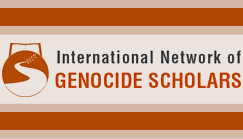Submission Type
Paper
Abstract
The paper aims to examine the Holocaust alongside the controversial Rohingya conflict in Myanmar. The Holocaust stands out as an example of the blending of circumstances and context which have mostly already taken place whereas Myanmar is a contested case. These two incidents will make it possible to draw informative comparisons and contrasts about not only the international community’s usage of the Holocaust in relation to the genocide paradox but also of the role played by international law, politics and history while handling these incidents. Both the cases differ from each other in terms of time, geographical location, international response, current status of each of these incidents, etc. The analysis will eventually provide us with a starting point as to how do various cases of mass violence evolve over time. It will further elaborate upon similar characteristics such as shared ideology, a regime with revolutionary and utopian ambitions, internal division and circumstances of war. On the other hand, the differences may exist in the general context, ideology, the political consequences, the international context and the nature of the conditions of war. Each case of genocide or alleged genocide carries with itself a unique character and context and hence one has to be diligent while comparing the Holocaust to other cases.
The Paradigms of Genocide: The Holocaust and the Rohingya Conflict of Myanmar
The paper aims to examine the Holocaust alongside the controversial Rohingya conflict in Myanmar. The Holocaust stands out as an example of the blending of circumstances and context which have mostly already taken place whereas Myanmar is a contested case. These two incidents will make it possible to draw informative comparisons and contrasts about not only the international community’s usage of the Holocaust in relation to the genocide paradox but also of the role played by international law, politics and history while handling these incidents. Both the cases differ from each other in terms of time, geographical location, international response, current status of each of these incidents, etc. The analysis will eventually provide us with a starting point as to how do various cases of mass violence evolve over time. It will further elaborate upon similar characteristics such as shared ideology, a regime with revolutionary and utopian ambitions, internal division and circumstances of war. On the other hand, the differences may exist in the general context, ideology, the political consequences, the international context and the nature of the conditions of war. Each case of genocide or alleged genocide carries with itself a unique character and context and hence one has to be diligent while comparing the Holocaust to other cases.





Comments
View the agenda item.